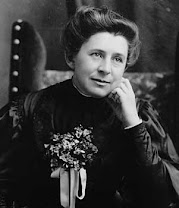Muckracking vs Yellow Journalism
Both Yellow Journalism and Muckraking brought sensational journalism to the forefront. But for wildly different reasons. First lets break down which each form of journalism really is.
Muckraking
Muckraking began during the Progressive Era in the United States. This form of journalism revolved around exposing the political and economic corruption going on during the Industrial period of American history.
Muckraking came out of the period of Yellow Journalism and was brought to attention in 1903 issue of McClure's Magazine. In this publication three wellknown journalist; Ida M. Tarbell, Lincoln Steffens, and Ray Stannard Baker, all wrote exposes on municipal government, trusts, and labor.
These exposes seen became increasingly popular with American readers captivated by the tales of corruption.
The muckraking era saw the publications of several investigative/ expose pieces on an awry of issues. One of the most famous being Ida M. Tarbell piece in 1904 called "The History of The Standard Oil Company" exposing the industry titian as a corrupt monopoly.
This style of journalism was unfortunately short lived and died out in the 1910's.
Yellow Journalism
Yellow Journalism is a dramatic and sensational style of journalism. In came about in the 1890's while William Randolph Hearst and Joseph Pulitzers respective publications were battling over control of the New York media.
They hoped that this style of journalism would bring readers to their newspapers instead of the other's. This proved to be true as yellow journalism soon captivated the American audience.
Yellow Journalism had the same goal as muckraking; to bring investigative work to the American reader. But instead of leaving it as purely journalistic work they instead incorporated cartoons, attention grabbing story lines, and often controversial writing.
Like muckraking, yellow journalism soon lost its appeal and died out from the media. But some tactics are still used today like vivid headers and the use of cartoons.




Comments
Post a Comment